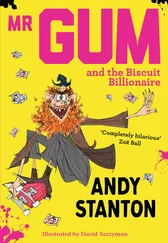Even the “black automobile” got linked with the name of Rasputin.
The “black automobile” remains a mystery to this day. Several nights running this car had roared across the Field of Mars, sped over the Palace Bridge and disappeared into the unknown. Shots had been fired from inside the car. Passers-by had been wounded.
“It’s Rasputin’s doing,” people were saying. “Who else?”
“What’s he got to do with it?”
“He profits from everything black, evil and incomprehensible. Everything that sows discord and panic. And there’s nothing he can’t explain to his own advantage when he needs to.”
These were strange conversations. But these were strange times, and so no one was especially surprised. Although the events soon to unfold swept the “black automobile” right out of our minds. All too soon we would have other things to think about.
But at the time, at dinner, we talked about all these things. First and foremost, people were astonished by Rasputin’s extraordinary brazenness. Razumov, who was then the director of the Department of Mines, indignantly related how one of his provincial officials had come to him with a request for a transfer. And to support his case, he had held out a piece of paper on which Rasputin—whom Razumov had never even met—had scrawled:
Dearie, do wot the barer asks and yul have no caws for regret.
Grigory.
“Can you imagine? The cheek of it! The brazen cheek of it! And there are a great many ministers who say they’ve received little notes like this. And all too many of them just do as he asks—though they don’t, of course, admit as much. I’ve even been told I was reckless to be getting so angry, because he would hear about it. It was vile. Can you imagine it? ‘Dearie’! As for the fine fellow who turned up with the note, I showed him what a ‘Dearie’ I can be! I’m told he flew down the stairs four at a time. And he had seemed like such a respectable man—as well as being a rather eminent engineer.”
“Yes,” said someone else, “I’ve heard about any number of these ‘Dearie’ recommendations, but this is the first time I’ve heard about one not being granted. People get all indignant, but they don’t feel able to refuse the man. ‘He’s vindictive,’ they say, ‘a vindictive peasant.’”
4
Sometime after ten o’clock I arrived at Filippov’s.
Our host greeted me in the hall. After saying in a friendly way that we’d already met once before, he showed me into his study.
“Your friends arrived some time ago.”
In the small, smoke-filled room were some half a dozen people.
Rozanov was looking bored and disgruntled. Izmailov appeared strained, as if trying to make out that everything was going fine when really it wasn’t.
Manuilov was standing close to the doorway, looking as if he felt entirely at home. Two or three people I didn’t know were sitting silently on the divan. And then there was Rasputin. Dressed in a black woollen Russian kaftan and tall patent leather boots, he was fidgeting anxiously, squirming about in his chair. One of his shoulders kept twitching.
Lean and wiry and rather tall, he had a straggly beard and a thin face that appeared to have been gathered up into a long fleshy nose. His close-set, prickly, glittering little eyes were peering out furtively from under strands of greasy hair. I think these eyes were grey. The way they glittered, it was hard to be sure. Restless eyes. Whenever he said something, he would look round the whole group, his eyes pricking each person in turn, as if to say, “Have I given you something to think about? Are you satisfied? Have I surprised you?”
I felt at once that he was rather preoccupied, confused, even embarrassed. He was posturing.
“Yes, yes,” he was saying. “I wish to go back as soon as possible, to Tobolsk. I wish to pray. My little village is a good place to pray. God hears people’s prayers there.”
And then he studied each of us in turn, his eyes keenly pricking each one of us from under his greasy locks.
“But here in your city nothing’s right. It’s not possible to pray in this city. It’s very hard when you can’t pray. Very hard.”
And again he looked round anxiously, right into everyone’s faces, right into their eyes.
We were introduced. As had been agreed, my fellow scribes did not let on who I really was.
He studied me, as if thinking, “Who is this woman?”
There was a general sense of both tedium and tension—not what we wanted at all. Something in Rasputin’s manner—maybe his general unease, maybe his concern about the impression his words were making—suggested that somehow he knew who we were. It seemed we might have been given away. Imagining himself to be surrounded by “enemies from the press”, Rasputin had assumed the posture of a man of prayer.
They say he really did have a great deal to put up with from journalists. The papers were always full of sly insinuations of every kind. After a few drinks with his cronies, Rasputin was supposed to have divulged interesting details about the personal lives of people in the very highest places. Whether this was true or just newspaper sensationalism, I don’t know. But I do know that there were two levels of security around Rasputin: one set of guards whom he knew about and who protected him from attempts on his life; another set whom he was supposed not to know about and who kept track of whom he was talking to and whether or not he was saying anything he shouldn’t. Just who was responsible for this second set of guards I can’t say for certain, but I suspect it was someone who wanted to undermine Rasputin’s credibility at court.
He had keen senses, and some animal instinct told him he was surrounded. Not knowing where the enemy lay, he was on the alert, his eyes quietly darting everywhere…
I was infected by my friends’ discomfort. It felt tedious and rather awkward to be sitting in the house of a stranger and listening to Rasputin straining to come out with spiritually edifying pronouncements that interested none of us. It was as if he were being tested and was afraid of failing.
I wanted to go home.
Rozanov got to his feet. He took me aside and whispered, “We’re banking on dinner. There’s still a chance of him opening up. Filippov and I have agreed that you must sit beside him. And we’ll be close by. You’ll get him talking. He’s not going to talk freely to us—he’s a ladies’ man. Get him to speak about the erotic. This could be really something—it’s a chance we must make the most of. We could end up having a most interesting conversation.”
Rozanov would happily discuss erotic matters with anyone under the sun, so it was hardly a surprise that he should be so eager to discuss them with Rasputin. After all, what didn’t they say about Rasputin? He was a hypnotist and a mesmerist, at once a flagellant and a lustful satyr, both a saint and a man possessed by demons.
“All right,” I said. “I’ll do what I can.”
Turning around, I encountered two eyes as sharp as needles. Our surreptitious conversation had obviously disturbed Rasputin.
With a twitch of the shoulder, he turned away.
We were invited to the table.
I was seated at one corner. To my left sat Rozanov and Izmailov. To my right, at the end of the table, Rasputin.
There turned out to be around a dozen other guests: an elderly lady with a self-important air (“She’s the one who goes everywhere with him,” someone whispered to me); a harassed-looking gentleman, who hurriedly got a beautiful young lady to sit on Rasputin’s right (this young lady was dressed to the nines—certainly more than “a bit glamorous”—but the look on her face was crushed and hopeless, quite out of keeping with her attire); and at the other end of the table were some strange-looking musicians, with a guitar, an accordion and a tambourine—as if this were a village wedding.
Читать дальше












